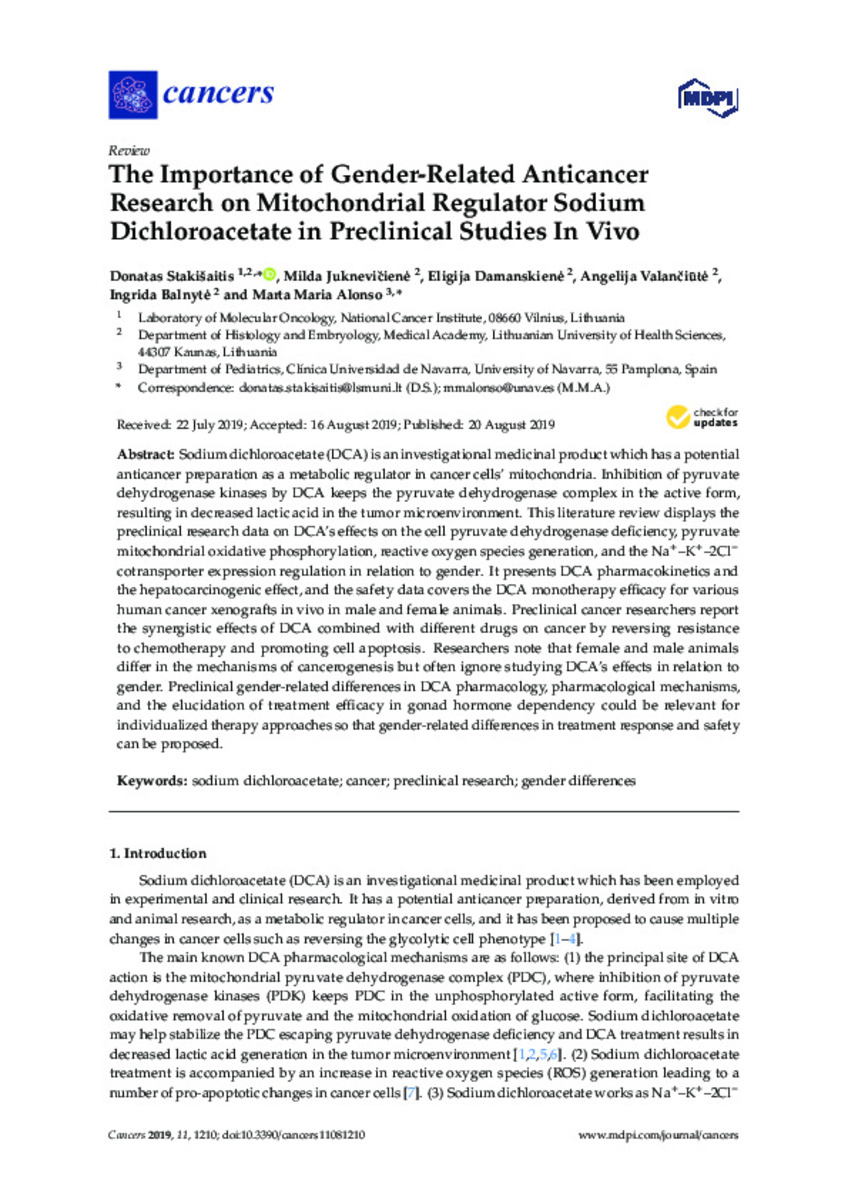The importance of gender-related anticancer research on mitochondrial regulator sodium dichloroacetate in preclinical studies in vivo
Palabras clave :
Sodium dichloroacetate
Cancer
Preclinical research
Gender differences
Fecha de publicación :
2019
Nota:
Licensee MDPI, Basel, Switzerland. This article is an open access
article distributed under the terms and conditions of the Creative Commons Attribution
(CC BY) license (http://creativecommons.org/licenses/by/4.0/).
Cita:
Stakisaitis, D. (Donatas); Jukneviciene, M. (Milda); Damanskiene, E. (Eligija); et al. "The importance of gender-related anticancer research on mitochondrial regulator sodium dichloroacetate in preclinical studies in vivo". Cancers. 11 (8), 2019, 1210
Aparece en las colecciones:
Estadísticas e impacto
0 citas en

Los ítems de Dadun están protegidos por copyright, con todos los derechos reservados, a menos que se indique lo contrario.







